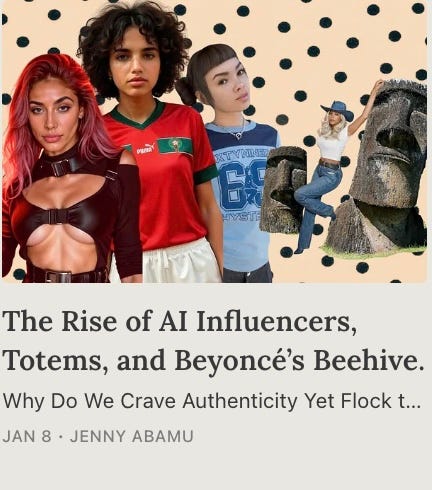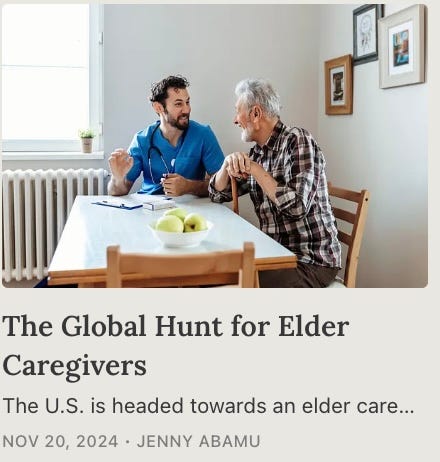As American Companies Move Away From DEI, Should You Move Somewhere Else?
Diversity, equity and inclusion can look totally different in other countries. Let's get into it!

It’s funny how certain corporate backtracks on Diversity, Equity, and Inclusion (DEI) can feel so personal—especially for Black people. Take Target, for instance. When it first expanded its offerings to include more Black haircare products, festive Black Santa outfits, and other items reflecting aspects of our culture, I remember feeling an odd little jolt of pride. Before that, finding quality hair products for myself or my kids usually meant a trip to the local beauty supply store. Target making shelf space for Black-owned or Black-centered products felt like our subculture had finally gone mainstream.
But now, with several U.S. companies scaling back DEI programs—some out of choice, others bowing to political or economic pressures—people are mulling over how to respond. Some are even looking overseas. A Black woman I know recently announced she was done with the United States and actually left. So that got me thinking: if we move abroad, will we find the diversity, equity, and inclusion that feels so shaky here?
Let’s get one thing straight: every country on this planet grapples with its own blend of racism, classism, prejudice, and discrimination. The events of 2020 may have amplified tensions in the United States, but other nations are not immune. Humans, in our infinite creativity, have always figured out new ways to exclude “the other.” How each place reckons (or refuses to reckon) with inclusion is complicated, shaped by unique histories, cultural values, and societal norms.
The Blue Passport Privilege
The first time I went to Turkey, I taught English in massive Istanbul. Among my students was a young Kurdish man who had recently returned from mandatory military service. The Turkish military at the time viewed certain Kurdish groups in the south as a primary threat, and here he was—Kurdish, conflicted, and wrestling with the trauma of being deployed against his own community.
Our English conversations morphed into impromptu therapy sessions. He told me about the discrimination he faced in his home country simply because of his Kurdish identity—jobs he couldn’t get, the invisible ceiling on his ambitions. It was all so heavy for him.
Meanwhile, my experience as a Black American in Turkey was totally different. Yes, I sometimes got unwanted attention—people asking for photos, touching my hair—but overall, the local community was welcoming.
They seemed more fascinated by me than hostile. I also found stable work teaching English. But I recognized that my American passport opened doors that might have been slammed shut for a dark-skinned person from an African nation.
A few African friends I met in Turkey shared stories of more direct—and far harsher—discrimination. My “Blue Passport Privilege” shielded me, at least partially, from the challenges they faced.
In many places I’ve traveled—Italy, other parts of Europe—the same pattern holds. Being Black doesn’t automatically trigger one uniform experience. People interpret your nationality, your accent, and your perceived social status in all kinds of ways. That nuance means you might face discrimination based on race in one context, yet receive preferential treatment based on being American in another.
National Identity Strength and Why It’s Hard to Integrate
So, how hard is it really to feel included overseas? Recently, I’ve tried to measure this through something I call “national identity strength”—basically, how intensely a country’s population holds onto traditional, sometimes exclusionary, ideas of who “belongs.”
• Very Strong National Identity: There’s a deep insider-versus-outsider mindset, and local traditions are nonnegotiable. The expectation might be: “You’re in our country, so follow all our customs exactly as we do—or else.”
• More Global Identity: Cultures here might be open to blending traditions and adopting outside influences. Sure, biases can still exist, but they might be subtler, hiding under the polite surface.
In nations with a more rigid sense of “who we are,” you’re more likely to run up against barriers in the job market or social spheres—particularly if you’re an immigrant, a person of color, or you don’t speak the local language fluently. Contacts who’ve worked or studied in Germany, Austria, and Switzerland talk about how bureaucracy and cultural formalities can be daunting, even if they appreciate the high quality of life there. One contact noted how even at the bars, many Austrians wore leather pants and paid tops like uniforms marking their national identity, a practice she found bizarre.
But Europe isn’t one simple monolith. Nationalism can be strong in certain pockets, and even neighboring countries or cities have different attitudes on integration. And because Europe is relatively small but extremely diverse, you can see stark contrasts in a quick, three-hour drive across a border. In some settings, assimilation is expected—people expect you to become “one of them” and don’t always see a need to adapt or accommodate.
Want More Content Like This?



DEI vs. “Acculturation”: A Different Lens Abroad
Where Americans often use DEI language, many other places focus on what could be called “acculturation” or integration. Rather than actively highlighting and celebrating differences—whether around race, gender, religion, or language—some cultures see it as the outsider’s duty to fold themselves into the existing social and professional fabric.
My Greek contact who has lived in Switzerland for years has struggled to find steady work despite her qualifications. The Swiss job market can be notoriously competitive, and she’s realized that feeling truly “included” often means mastering local languages and customs in ways that go far beyond standard HR trainings. On the flip side, younger Europeans in certain global cities—think Berlin or Barcelona—might be more open and fluent in cross-cultural exchange. It’s not a one-size-fits-all scenario.
But there are many countries working hard to address diversity, equity and inclusion within their borders. Colombia got its first Black woman vice president in 2022. Spain, a country that only recently experienced a large influx of immigrants, is slowly diversifying its Congress with representatives like Rita Bosaho, the first Black female member of the Spanish Parliament. But it’s still rare, and some would argue that official “DEI” frameworks in many parts of the world are significantly behind the U.S. in many respects, partly because the concept of celebrating difference isn’t as widespread.
So…Should You Move?
Ultimately, no matter where you choose to live, discrimination is layered, complicated, and follows you in different forms. Every country is on its own journey toward reckoning with inequities—some are just more vocal or systematic about it than others.
And make no mistake: the United States, despite its internal battles and political drama, is also still on that journey. We may be watching companies move away from the words “diversity, equity, and inclusion,” but that’s not the end of any story. Market forces and global realities will continue to nudge companies—whether they like it or not—to adapt, hire from diverse talent pools, and tap into different cultural markets. Whether we call it DEI, “cultural intelligence,” “multicultural competence,” or simply “good business,” these needs aren’t going away.
But if you’ve got a personal calling for adventure or a more hospitable climate, this may be a great chance to explore. But you won’t be escaping discrimination as a concept. You’ll just be changing its shape, language, or cultural rules.
I’m still shopping at Target for my Black hair products, and for now, they’re still on the shelf. As long as those profits roll in, I’m guessing they’ll stay.
You are now more cultured because…
…you understand that national identity strength can impact how a person with a different background is able to maneuver within society.
Help Us Reach Our Subscriber Goals. 1,000 Strong.
We really want to hit 1000, subscribers (free or paid) and would love your help getting there.
Refer three friends and get one month for free.
Or, help us grow and gift a subscription to a friend.
Follow us on Instagram and LinkedIn: Connect with us for regular updates, behind-the-scenes snippets, and all the global savvy you crave.






